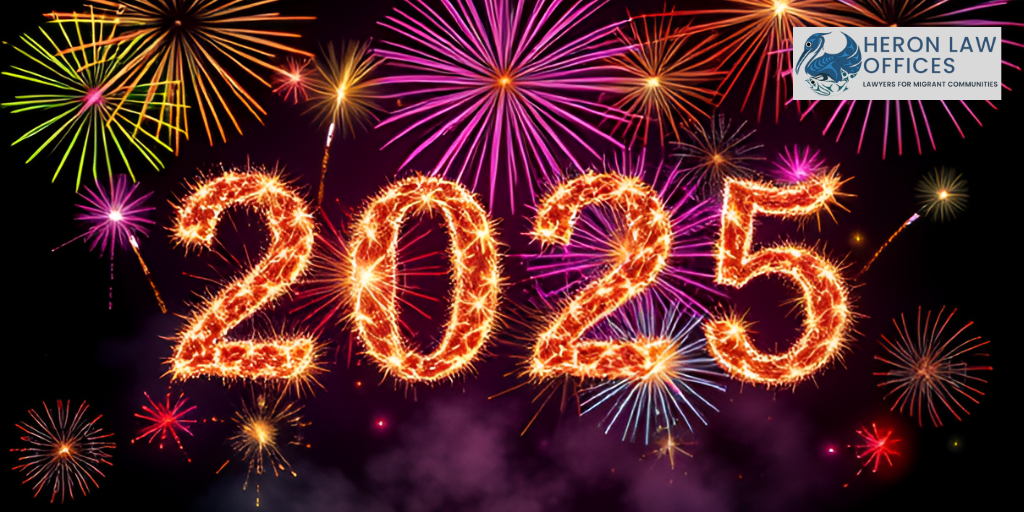
Image made using dezgo.com with the prompt: “New Year 2025 with colourful fireworks.”
The Applicant was declared a military target by Colombian forces in the early 2000s and sought protection at the Canadian Embassy in Bogota.
In August 2005, Canada accepted the Applicant and his family for resettlement to Canada under the Source Country Class stream. They landed in Canada as permanent residents (“PR”) in November 2005 and the Officer returned their Colombian passports to them.
In February 2009, the Applicant travelled to Colombia on his Colombian passport to visit his ill mother, but he remained in Colombia for six years and did not return to Canada during this time. He did, however, apply for a new Colombian passport and travelled to Panama for business in June 2013.
Upon his return from Panama, his mother informed him that an offshoot of the Colombian forces (who killed his brother earlier that year) contacted her. The Applicant believed he was no longer safe and inquired with the Canadian Embassy about returning to Canada. He was advised to apply for a PR travel document (“PRTD”), despite the expiry of his PR card.
In March 2014, the Applicant applied for a PRTD. The application was refused for failing to comply with his residency obligations.
In April 2015, the Applicant travelled to the U.S. and presented himself at the Canadian border, claiming refugee protection, which was refused on the basis of ineligibility as he had previously been granted protected status.
In May 2015, the Refugee Protection Division (“RPD”) notified the Applicant that his refugee claim had been terminated. In June 2021, the Minister applied under s. 108 of the IRPA to cease the Applicant’s protected status on the grounds of voluntary re-availment and voluntary re-establishment.
His cessation hearing was held in January 2023, at which the Applicant testified. The Minister and the Applicant later provided written submissions. The Applicant argued that he did not possess the requisite intent to re-avail himself of Colombia’s protection and that he was unaware of the consequences of staying in Colombia. The Respondent argued that RPD’s re-establishment conclusion was reasonable on the evidence.
In May 2023, the RPD allowed the Minister’s application, first on s. 108(1)(d) and then under s. 108(1)(a).
Justice Little found the RPD’s findings and conclusion under s. 108(1)(d) reasonable as the RPD addressed intention and the Applicant’s testimony on this issue.
Regarding s. 108(1)(a), Justice Little agreed with the Applicant that there was a higher duty on the RPD to explain its decision following the Federal Court of Appeal’s decision in Galindo Camayo (para 21). Still, while it might have been preferable for the RPD’s analysis of the Applicant’s intention to re-avail to mention the Applicant’s position and evidence on subjective intent, and to more clearly distinguish voluntariness and intention, the RPD did not make any reviewable error.
See: Machado Mena v. Canada (Citizenship and Immigration), 2024 FC 2005, <https://decisions.fct-cf.gc.ca/fc-cf/decisions/en/item/527082/index.do>.
If you need legal advice regarding your matter before the Immigration and Refugee Board (“IRB”), please contact Heron Law Offices to book a consultation with one of our experienced immigration lawyers.



